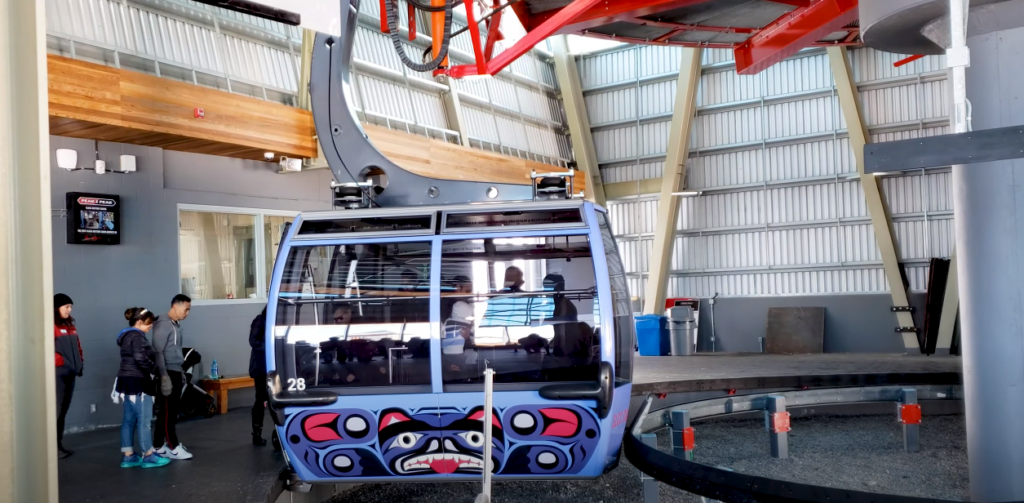Situated inside the grandeur of the Canadian Rockies, the Peak to Peak Gondola stands as an impressive testament to technical prowess, providing guests with an extraordinary mountain encounter that is unmatched in its splendor. The gondola, which is hung at a significant elevation above the challenging topography, has acquired a symbolic status representing Whistler Blackcomb, a globally recognized ski resort located in British Columbia, Canada. This scholarly article examines the historical background and structural composition of the Peak to Peak Gondola, investigating the technological advancements that enable its operation and addressing commonly raised inquiries regarding this remarkable feat of engineering.
A Glimpse into the Past
The idea of connecting Whistler Mountain and Blackcomb Mountain via a gondola was first conceived in the late 1990s. The goal was to create a transportation link that would not only provide skiers and snowboarders easy access to both mountains but also offer breathtaking panoramic views of the surrounding wilderness. The ambitious project was officially announced in 2004, and construction commenced shortly after.
Construction Timeline
Here’s a timeline of the key construction milestones for the Peak to Peak Gondola:
- 2004: Official announcement of the project;
- 2007: Construction begins on the gondola;
- 2008: The towers, including the record-breaking unsupported span, are installed;
- 2008: The gondola cabins are put in place;
- 2008: Testing and safety inspections take place;
- December 12, 2008: The Peak to Peak Gondola opens to the public.
Technical Marvels of the Peak to Peak Gondola

The Peak to Peak Gondola is not just a means of transportation but also a testament to human engineering and innovation. Here are some remarkable technical aspects of this feat:
| Feature | Description |
|---|---|
| Record-breaking Span | The Peak to Peak Gondola boasts a record-breaking unsupported span of 3.03 kilometers (1.88 miles) between its two highest towers. This extraordinary span earned it a place in the Guinness World Records. |
| 360-Degree Views | The gondola cabins are equipped with floor-to-ceiling glass windows, offering passengers a 360-degree view of the surrounding mountains, valleys, and forests. It’s a panoramic experience like no other. |
| Dual-Traction System | To ensure safety and reliability, the gondola employs a dual-traction system with two separate steel cables—one for support and one for propulsion. This redundancy enhances safety and minimizes downtime. |
| Innovative Cabin Design | The gondola cabins are designed to comfortably accommodate 28 passengers each. They are equipped with padded seats and floor heating for a cozy ride even in cold weather. |
| Sustainability | Whistler Blackcomb is committed to sustainability, and the Peak to Peak Gondola is no exception. It uses environmentally friendly technologies, such as LED lighting and energy-efficient motors, to minimize its carbon footprint. |
Conclusion
The Peak to Peak Gondola stands as an engineering marvel that not only connects two of Canada’s most iconic ski mountains but also provides an awe-inspiring experience for visitors year-round. With its record-breaking spans, innovative cabin design, and commitment to sustainability, it continues to captivate the hearts of tourists and outdoor enthusiasts from around the world. Whether you’re a skier, a nature lover, or simply seeking a unique adventure, the Peak to Peak Gondola is a must-visit destination that will take you to new heights, both literally and figuratively. So, when you find yourself in the breathtaking landscapes of British Columbia, don’t miss the chance to soar through time on the Peak to Peak Gondola.
FAQ
The ride on the Peak to Peak Gondola takes approximately 11 minutes from start to finish.
The gondola reaches a maximum height of 436 meters (1,430 feet) above the ground at its highest point.
Each gondola cabin can accommodate up to 28 passengers.
The Peak to Peak Gondola is typically operational from late spring to early fall for sightseeing, and during the winter season for skiers and snowboarders.
The gondola undergoes regular maintenance and safety inspections. Additionally, it has backup systems and safety features to ensure passenger safety.
Yes, it’s not uncommon to spot wildlife such as bears, eagles, and mountain goats from the gondola cabins, especially during the warmer months.
Yes, both the Whistler and Blackcomb terminals offer dining options where you can enjoy a meal with stunning mountain views.
Yes, the gondola terminals and cabins are designed to accommodate passengers with disabilities. Accessible boarding and seating are available.
Yes, it’s highly recommended to purchase tickets in advance, especially during peak tourist seasons, to secure your preferred time slot.
Yes, guided tours are offered, providing visitors with in-depth information about the gondola’s construction, the surrounding environment, and the history of the region.